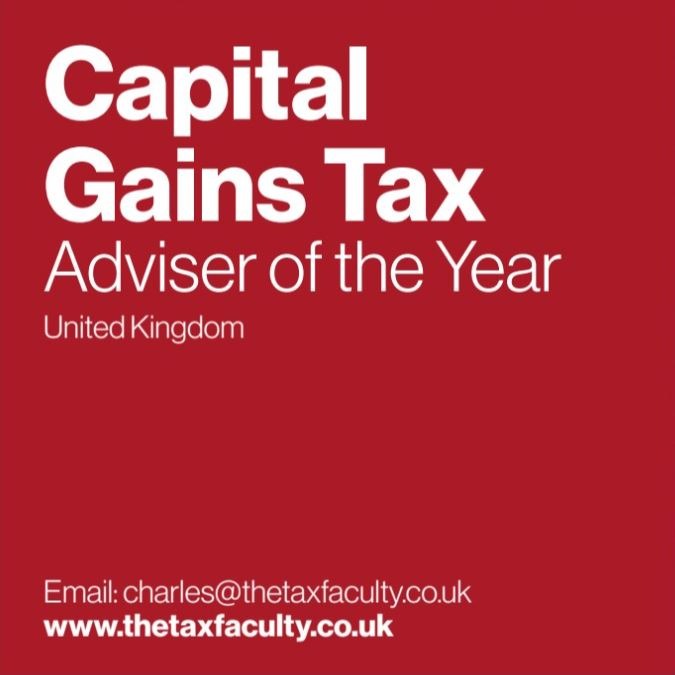TTF Tackles the Money Monster under your bed: Setting up my Business is becoming a Tax Minefield
Setting up your own business is an exciting venture, but navigating the tax system can feel overwhelming, especially if you're new to it.
HMRCTAX COMPLIANCESELF-ASSESSMENTNATIONAL INSURANCEENTREPRENEURSHIP
The Tax Faculty
11/20/20246 min read


"When COVID hit, like many others, I found myself with more time at home. I’ve always loved creating, and I finally had the chance to dive into my passion for art and craft. I started making bespoke jewellery for friends and family—initially just as a way to stay busy and bring a bit of joy during a tough time. But what started as a hobby quickly turned into something much bigger.
With a little push from social media, my designs started gaining attention. Orders rolled in, and before I knew it, I was running a small business out of my kitchen. Fast forward to today, and I’ve just left my 9-5 job to pursue this dream full-time. It’s exciting, overwhelming, and a little surreal all at once.
But there’s one big issue—I know nothing about tax. Absolutely nothing.
I’ve done my fair share of Googling and scrolling through forums to try and get my head around it, but it’s all so confusing. Some people say I need to register as self-employed with HMRC right away. Others say I don’t have to unless I hit a certain income level. Then there’s talk of VAT, allowable expenses, and keeping detailed records—things I didn’t even know existed when I started this journey.
I’ve spoken to a few friends of friends who have side hustles, and while their advice is helpful, it’s inconsistent. Everyone seems to have a different take on what’s “correct,” and it’s left me feeling even more uncertain. I know how important it is to get this right—not just to avoid penalties but also to make sure my business stays on solid footing as it grows.
The last thing I want is to focus so much on the admin side of things that I lose the joy of creating. But at the same time, I don’t want to bury my head in the sand and risk making costly mistakes. I want to run my business properly, keep things above board, and, hopefully, build something sustainable for the future.
So here I am, at square one, looking for someone who can guide me through the process. I don’t just need advice; I need clarity—someone who can explain the tax side of things in plain English and help me feel confident about the financial side of running my business. Because while I might be great at designing jewellery, tax codes and HMRC regulations? That’s a whole other story.


Setting up your own business is an exciting venture, but navigating the tax system can feel overwhelming, especially if you're new to it. This guide breaks down the essential tax considerations when starting a business, step by step, so you can focus on growing your passion with confidence.
1. Registering Your Business
When you start earning money from your business, you need to inform HMRC. The structure of your business determines how you register:
Self-Employed/Sole Trader
Register for self-assessment with HMRC within three months of starting your business.
As a sole trader, your business income is considered personal income, so you'll pay Income Tax and National Insurance on your profits.
Limited Company: Incorporate your business through Companies House and register for Corporation Tax with HMRC. A limited company offers more legal protection but comes with additional responsibilities like filing annual accounts.
Tip: If you're unsure which structure suits your needs, consult a tax advisor to weigh the pros and cons of each option.
2. Understanding Taxable Income
For Sole Traders:
Tax is paid on your profits (income minus allowable expenses). You'll also pay:
• Income Tax: Based on standard tax bands.
• Class 2 National Insurance: A flat weekly rate if your profits exceed £12,570 (2024/25 threshold).
• Class 4 National Insurance: A percentage of your profits.
For Limited Companies:
• Corporation Tax: Paid on your company’s profits (currently 19% or 25% depending on profits).
• Directors' Salary and Dividends: These payments have their own tax rules, offering opportunities for tax efficiency.
3. Claiming Allowable Expenses
Understanding what you can deduct from your income is key to reducing your taxable profit. Common allowable expenses include:
• Materials or stock for your business.
• Equipment (e.g., laptops, tools, or machinery).
• Office costs (rent, utility bills, or a percentage of your home if you work there).
• Advertising and marketing, including social media promotions.
• Travel expenses related to business activities.
Tip: Keep detailed records of receipts and invoices for all expenses to ensure you can justify claims if HMRC audits your business.
4. Managing VAT
If your turnover exceeds the VAT threshold (£85,000 as of 2024), you must register for VAT. You can also voluntarily register to reclaim VAT on business expenses.
Key VAT Schemes to Consider:
• Standard VAT Accounting: Charge VAT on sales and reclaim VAT on purchases.
• Flat Rate Scheme: Pay a percentage of your turnover to HMRC, simplifying VAT administration.
5. Keeping Records
Good record-keeping isn’t just essential for tax compliance—it’s also a valuable tool for understanding your business’s financial health. HMRC requires:
• Records of all sales and expenses.
• Bank statements and receipts.
• Payroll records if you hire staff.
Tip: Consider using accounting software like QuickBooks, Xero, or FreeAgent, which helps automate record-keeping and can connect directly to HMRC for Making Tax Digital (MTD).
6. Paying Taxes on Time
Meeting HMRC deadlines is crucial to avoid penalties:
• Self-Assessment Tax Returns: Due by 31 January each year for the previous tax year.
• Corporation Tax Returns: Typically due 12 months after the end of your company’s financial year.
Tip: Set reminders for deadlines and consider setting aside a portion of your income each month for tax payments.
7. Understanding Your National Insurance Contributions (NICs)
NICs fund state benefits like pensions and healthcare. Depending on your business type, you may pay:
• Class 2 and Class 4 NICs as a sole trader.
• Employer and employee NICs if you run a limited company and employ staff.
8. Handling Personal vs. Business Finances
Keeping your business finances separate from personal spending simplifies tax calculations and avoids confusion. Open a dedicated business bank account for:
• Receiving payments.
• Paying expenses.
• Managing tax obligations.
9. Tax Planning and Growth
As your business grows, you may need to consider advanced tax strategies, such as:
• Employing family members to share income.
• Contributing to a pension for tax relief.
• Exploring Research & Development (R&D) tax credits.
Tip: Work with a tax advisor to plan ahead and take advantage of tax-saving opportunities.
10. Getting Professional Advice
The tax system can be complex, and getting it wrong can lead to fines or missed opportunities for savings. A qualified tax advisor can:
• Help you register your business.
• Ensure you’re claiming all eligible expenses.
• Advise on long-term tax strategies to reduce your liabilities.
Final Thoughts
Understanding tax when setting up your business might seem daunting, but with the right approach and support, it’s manageable. Start by staying organised, meeting your legal obligations, and seeking advice when needed. The sooner you get your tax affairs in order, the more time you’ll have to focus on growing your business—and doing what you love.
If you're looking for tailored advice, reach out to one of our trusted tax advisors at The Tax Faculty who can guide you every step of the way. You don’t have to do it alone!
Capital Gains Tax Expertise: The Tax Faculty LLP Managing Partner Charles Tateson Named UK Capital Gains Tax Advisor of the Year 2023
The Finance Monthly Taxation Awards recognises the achievements of tax professionals from around the globe.
Winning such an award is no small feat. It is a reflection of hard work, extensive knowledge, and an ability to navigate the intricacies of the UK tax system.
Read more about Charles and the award here.



Contact Us
Contact us today on freephone 0800 0016 878 for a free consultation on all tax issues, or fill out the handy form below and we'll get back to you as soon as possible.
Alternatively, you can email us at info@thetaxfaculty.co.uk or complete the form below.
(Please note, non-UK callers may need to call 0207 101 3845 if your line cannot connect to our 0800 number)
Feel free to contact us through WhatsApp - we accept calls and messages.
Simply click the WhatsApp button below:
The Tax Faculty LLP - info@thetaxfaculty.co.uk
Call us on 0800 0016 878 for a free consultation
Copyright © 2024 The Tax Faculty LLP - All Rights Reserved


